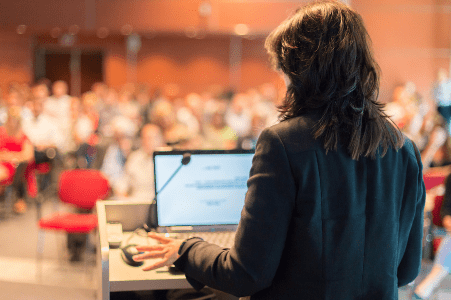Back in the days when I was taking high school biology, the knowledge of the day was that the brain did not continue to grow and develop once you reached you’re a certain age. And what makes matters worse, we learned that brain cells were on a slow and steady decline until the end of your life. I recall a feeling on angst when I first heard this because it basically meant that in each passing day, my brain would continue to decay.
Fortunately for me, what we know today about the brain is that the brain continues to change throughout our lifetime and can form new connections between brain cells. This concept is called neuroplasticity. Neuroplasticity happens in the developmental stages of the brain and today we also know that it continues to happen in the case of brain injury to compensate for lost functions and when something new is learned or memorized. This means that as long as you continue to provide new content to your brain, it will continue to form new pathways.
In his book “The Brain That Changes Itself: Stories of Personal Triumph from the Frontiers of Brain Science,” Norman Doidge describes numerous examples of functional shifts. In one of them, a surgeon in his 50s suffers a stroke. His left arm is paralyzed. During his rehabilitation, his good arm and hand are immobilized, and he is set to cleaning tables. The task is at first impossible. Then slowly the bad arm remembers how to move. He learns to write again, to play tennis again: the functions of the brain areas killed in the stroke have transferred themselves to healthy regions! The brain compensates for damage by reorganizing and forming new connections between intact neurons. In order to reconnect, the neurons need to be stimulated through activity. (Brain Plasticity, 2008)
This is great news for all of us who are dedicated to lifelong learning! There are a number of benefits to being a lifelong leaner among which include:
Professional Development
Professional development is essential in keeping skilled workers in the workplace. With human capital now the critical factor in a successful work organization, and new information being created continuously, professional development is now a lifelong activity for those in the workforce to gain new skill sets. Keeping yourself learning and growing will open up promotion, new job, and retention opportunities.
Health Benefits
Lifelong learning isn’t simply an economic must but a social, emotional, and physical one as well. We live in an age of abundant opportunity for learning and development. Taking advantage of that opportunity — staying curious and open-minded is a worthy life pursuit.
Hospital and Harvard Medical School and his colleagues reveal while cognitive activity can’t change the biology of Alzheimer’s, learning activities can help delay symptoms, preserving people’s quality of life. They found that staying mentally and socially active can push back the appearance of memory problems and other symptoms of Alzheimer’s.
Intellectual benefits of lifelong learning
Lifelong learning increases your knowledge and – just as importantly – your ability to use that knowledge in diverse and meaningful ways. Lifelong learning opens up and enhances your mind, helping you to see and create innovation. The process of lifelong learning helps to keep your brain working well, and as we continue to live longer and longer, this is a benefit that is hard to ignore.
So start off 2019 with the goal to learn one new thing a day. It doesn’t have to be a laborious process. Find an interesting article, pick a topic that excites you, search through Coursera and Udemy, learn how to code, teach a class, just do it! You’ll be happy you did.
—
Dr. Gina Lepore, MBA is the CEO, founder of MACH4 Ventures and Avid Lifelong Learner offering coaching, team building and consulting for individuals and organizations. She is a board certified coach and experienced executive with multiple decades of practical business experience. Services include: Executive Coaching, Training and Building Team Trust and Collaboration and Business Oversight Services.

